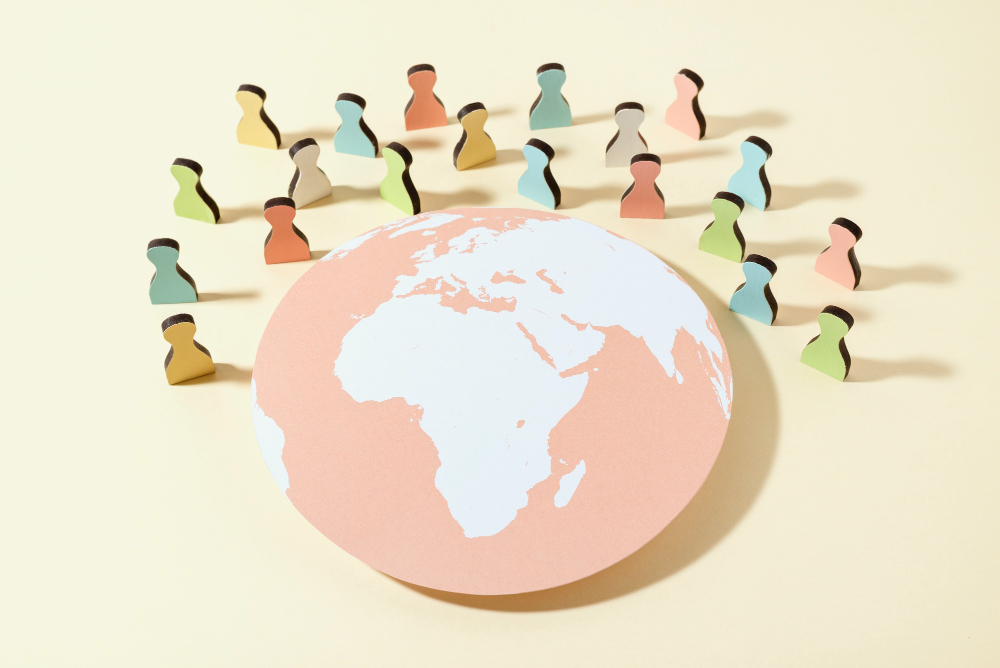Cultural identity is a complex construct that reflects the way individuals perceive themselves in the context of their cultural background. It encompasses a broad range of elements, including ethnicity, nationality, language, religion, and traditions, among others. This identity shapes individuals’ beliefs, values, and behaviors, influencing how they see the world and interact within it. Cultural identity is not static; it evolves over time, influenced by personal experiences, societal changes, and cross-cultural interactions. This article explores the multifaceted nature of cultural identity, its importance in shaping individual and collective experiences, and the factors contributing to its continuous evolution.
The Foundations of Cultural Identity
At its core, cultural identity is rooted in the sense of belonging to a specific group that shares common cultural codes and practices. These foundations are laid in early childhood and are shaped by family traditions, language, and the broader societal context in which an individual grows up. For many, cultural identity provides a sense of security and continuity, offering a framework through which the world can be understood. It also plays a crucial role in the development of self-esteem and self-awareness, as individuals identify with the collective history, achievements, and struggles of their cultural group.
The Role of Language and Tradition
Language and tradition are pivotal in the formation and expression of cultural identity. Language is not only a tool for communication but also a carrier of culture, embodying the knowledge, beliefs, and values of a community. It connects individuals to their heritage and maintains the continuity of culture across generations. Similarly, traditions—be it festivals, rituals, or everyday practices—reinforce cultural bonds and create a shared sense of identity and belonging. They provide a tangible connection to the past, marking the rhythms of life and celebrating the unique aspects of a culture.
Cultural Identity in a Globalized World
Globalization has brought about increased cross-cultural interactions, presenting both challenges and opportunities for cultural identity. On one hand, it can lead to the dilution of distinct cultural practices and a sense of dislocation or identity crisis among individuals. On the other hand, it offers opportunities for cultural exchange and the enrichment of one’s cultural identity by incorporating diverse perspectives and practices. In this globalized context, cultural identity becomes fluid, as individuals navigate and integrate multiple cultural influences into their sense of self.
Navigating Multiple Cultural Identities
Many individuals navigate multiple cultural identities, either through migration, mixed heritage, or simply by participating in a multicultural society. This experience can be enriching, providing a broader view of the world and fostering adaptability and empathy. However, it can also pose challenges, as individuals may struggle with questions of belonging and identity negotiation. Finding a balance between preserving one’s original cultural identity while embracing new cultural elements is a dynamic and personal process, often resulting in a hybrid or intercultural identity.
The Importance of Cultural Identity
Cultural identity is vital for personal and collective well-being. It contributes to a sense of belonging and purpose, grounding individuals in a community with shared values and understandings. Furthermore, recognizing and appreciating the cultural identities of others is crucial for fostering mutual respect and understanding in increasingly diverse societies. By valuing cultural diversity, societies can promote inclusivity, reduce conflict, and enhance the richness of the human experience.
Embracing Cultural Identity
Cultural identity is a key facet of human experience, influencing how individuals perceive themselves and interact with the world. It is shaped by a complex interplay of factors, including language, tradition, and the forces of globalization. As societies become more interconnected, the ability to maintain one’s cultural identity while engaging with others becomes increasingly important. Embracing cultural identity, in all its diversity, is essential for building inclusive communities that celebrate the richness of human cultures. By understanding and honoring our own cultural identities and those of others, we can create a more empathetic and cohesive world.
